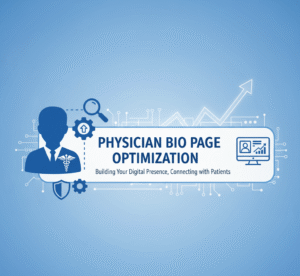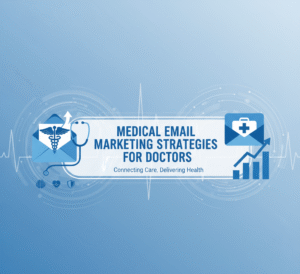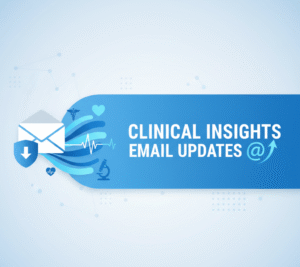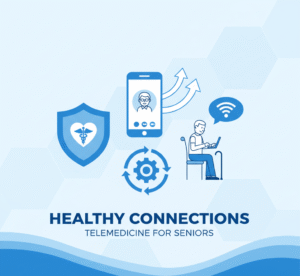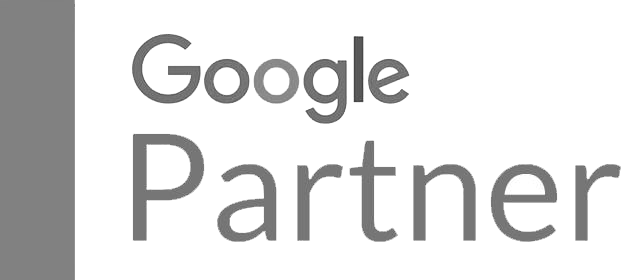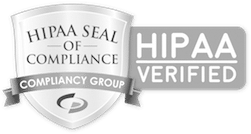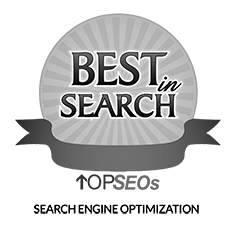“Maximize patient acquisition for your clinic. Explore effective Digital Ads for Weight Loss Clinics, covering PPC, Meta Ads, targeting, and lead generation best practices.”
In today’s competitive healthcare landscape, weight loss clinics face a significant challenge: connecting with individuals who genuinely need their services. Traditional advertising methods often fall short, struggling to reach the right people at the right time. This is where digital advertising steps in, offering a powerful, precise, cost-effective solution for patient acquisition.
This article will explore effective digital advertising strategies explicitly crafted for weight loss solution providers. We will highlight proven tactics across Pay-Per-Click (PPC), Meta Ads, and other crucial channels. We aim to provide educational value, covering essential aspects like ad targeting, compelling messaging, navigating compliance, and mastering lead generation best practices. You will also see how InvigoMedia‘s deep medical digital marketing agency expertise positions us as the ideal partner in this specialized space.
Are you ready to transform your clinic’s online presence and attract more patients? Let’s dive in.
Understanding Your Audience: The Foundation of Effective Digital Ads
Before launching any digital ad campaign, it is paramount to understand your target audience truly. Who are the individuals seeking weight loss solutions? What motivates them? What are their pain points, fears, and aspirations?
Identifying Your Ideal Patient:
- Demographics: Consider age groups (young adults to middle-aged are common), gender (often female, but male demographics are growing), income levels, and geographical location. Are they busy professionals? New parents? Older adults looking to improve their health?
- Psychographics: Dig deeper into their motivations. Are they concerned about health issues like diabetes or heart disease? Do they desire increased confidence or improved mobility? Are they looking for a sustainable lifestyle change or a quick fix?
- Online Behavior: Where do they spend their time online? What websites do they visit? What social media platforms do they use? What terms do they type into search engines when looking for solutions?
For instance, a busy professional might search for “quick weight loss programs for executives,” while a new mother might look for “post-pregnancy weight loss tips.” Tailoring your content and SEO strategies to resonate with these needs is crucial. A deep understanding of these aspects allows you to craft messages that genuinely connect, building trust and inspiring action.
Core Digital Advertising Strategies for Weight Loss Clinics
Digital advertising encompasses various powerful channels. Focusing on a few key areas for weight loss clinics delivers the best return on investment. These include search engine advertising (PPC/Google Ads) and social media advertising (Meta Ads).
1. Pay-Per-Click (PPC) for Medical Clinics: Mastering Google Ads
PPC advertising, particularly through Google Ads, places your clinic at the top of search results exactly when potential patients are actively searching for solutions. When someone types “weight loss clinic near me” or “diet counseling programs,” your ad can appear prominently, guiding them directly to your services.
Key Components of a Successful PPC Strategy:
- Keyword Research: This is the bedrock of PPC. Identify terms individuals are actively searching for.
- High-Intent Keywords: Focus on phrases indicating a clear intention to seek help, such as “bariatric surgery options,” “medical weight loss programs,” “non-surgical weight loss clinic,” or “diabetes weight management.”
- Long-Tail Keywords are more specific, often longer phrases that reduce competition and attract highly qualified leads. Examples include “personalized nutrition plans for pre-diabetics” or “sustainable weight loss coaching in [your city].”
- Local Keywords: Crucial for clinics, integrating “near me,” “in [city name],” or “affordable weight loss solutions [state]” ensures you capture local searches.
- Negative Keywords: As important as positive ones, negative keywords prevent your ads from showing for irrelevant searches. For example, add “free,” “products,” “supplements,” or “gym” to avoid wasting ad spend on people not looking for clinic services.
- Compelling Ad Copy: Your ad copy must be concise, persuasive, and highlight your clinic’s unique selling points (USPs).
- Headline Power: Your headlines are the first thing people see. Make them impactful. Use keywords and emotional triggers. Examples: “Achieve Lasting Weight Loss,” “Personalized Weight Loss Plans,” “Your Path to a Healthier You.”
- Description Lines: Provide more detail about your services, benefits, and differentiators. Focus on patient outcomes. Emphasize emotional benefits like increased confidence or improved health. Example: “Our expert team offers tailored programs, lasting results. Start your journey today!”
- Call-to-Action (CTA): A strong CTA is non-negotiable. Tell people exactly what to do next. Use action-oriented language. Examples: “Book a Free Consultation,” “Schedule Your Assessment,” “Learn More & Get Started.”
- Ad Extensions: Utilize site links, call extensions, location extensions, and structured snippet extensions to provide more information and ways for users to connect. This increases visibility and click-through rates.
- Landing Page Optimization: A common mistake is sending ad clicks to a generic homepage. Your landing page must be highly relevant to the ad’s message and designed for conversion.
- Relevance: The landing page content should match the ad copy and keywords.
- Clear Value Proposition: Immediately communicate the benefits of your clinic and why someone should choose you.
- User-Friendly Design: Ensure it’s easy to navigate, with a clear form or contact information.
- Mobile Responsiveness: A significant portion of searches happen on mobile devices. Your landing page must be perfectly optimized for all screen sizes.
- Strong CTAs: Repeat your call-to-action prominently on the landing page, making it easy for visitors to take the next step.
- Bidding Strategies: Google Ads offers various bidding strategies.
- Maximize Conversions: Let Google automatically set bids to get the most conversions within your budget.
- Target CPA (Cost-Per-Acquisition): Aim for a specific lead or patient acquisition cost.
- Manual CPC: Gives you complete control over your bids for specific keywords.
- Choosing the right strategy depends on your goals and budget. Testing and adjusting are key to finding what works best.
2. Meta Ads: Leveraging Facebook and Instagram for Patient Acquisition
Meta Ads (Facebook and Instagram) provide unparalleled opportunities for targeted advertising. They allow you to reach potential patients based on their demographics, interests, behaviors, and connections to your existing patient base. These platforms are ideal for building awareness, nurturing leads, and driving conversions for weight loss clinics.
Key Strategies for Meta Ads:
- Audience Targeting Mastery: This is where Meta Ads shine.
- Demographic Targeting: Reach people based on age, gender, location, relationship status, education, and job titles. For example, target women aged 30-55 in your service area.
- Interest-Based Targeting: Target users interested in health and wellness, fitness, nutrition, healthy eating, specific diets, or weight loss programs.
- Behavioral Targeting: Target individuals based on purchasing behavior, device usage, or online activities.
- Custom Audiences: Upload your existing patient list (hashed for privacy) to reach current patients with relevant offers or exclude them from acquisition campaigns. Also, create custom audiences from website visitors or Facebook/Instagram engagers to retarget warm leads.
- Lookalike Audiences: Leverage your custom audiences to find new users on Facebook and Instagram who share similar characteristics with your existing patients or website visitors. This significantly expands your reach to highly relevant prospects.
- Creative Best Practices: Visuals and Ad Copy: Meta platforms are highly visual. Your ad creatives must grab attention and tell a story.
- High-Quality Images and Videos: Use authentic, high-resolution visuals. Avoid generic stock photos. Consider using images of real patients (with consent) showing positive transformations or healthy lifestyle activities. Short, engaging videos showcasing your clinic’s environment, patient testimonials, or a doctor explaining a procedure perform exceptionally well.
- Engaging Ad Copy: Keep it concise but compelling. Start with a hook that addresses a pain point. Highlight the benefits of your services, not just features. Use emotional triggers, focusing on confidence, health, and a better quality of life.
- Example for an image ad: “Tired of dieting without results? Discover personalized weight loss solutions designed just for you. [Image: Happy person looking confident]”
- Example for a video ad: “Watch Sarah’s amazing transformation with our supportive team. [Video: Before/After, testimonial snippets]. Ready for your own success story?”
- Strong Call-to-Action (CTA): Always include a clear CTA button. Options include “Learn More,” “Book Now,” “Get Quote,” or “Sign Up.”
- Campaign Objectives: Choose the right objective for your campaign goals.
- Awareness: For building brand recognition.
- Traffic: To drive visitors to your website or landing page.
- Lead Generation: Use lead forms to collect contact information directly on Facebook or Instagram. This is excellent for weight loss clinics.
- Conversions: To encourage specific actions on your website, like scheduling a consultation or filling out an inquiry form.
3. Other Digital Marketing Channels for Weight Loss Clinics
While PPC and Meta Ads are primary, other channels contribute to a comprehensive digital marketing strategy.
- Display Advertising: These are visual ads on websites, apps, and other online properties within the Google Display Network or other ad networks. They are excellent for brand awareness and retargeting individuals who have previously visited your website. Use compelling visuals and strong brand messaging.
- Video Ads (YouTube): YouTube is the second-largest search engine. Running video ads allows you to tell a more in-depth story, showcase patient testimonials, or explain your unique methodologies. Target viewers based on their interests, demographics, or even what videos they’re watching.
- Content Marketing and SEO: While not direct advertising, a robust content strategy supports your paid efforts. Creating valuable blog posts, articles, and guides on topics like “healthy eating tips,” “benefits of medical weight loss,” or “understanding your metabolism” attracts organic traffic. This content can be shared on social media and linked from your ads, providing educational value and positioning your clinic as an authority. Optimizing this content for search engines (SEO) ensures long-term organic visibility.
- Email Marketing: Build an email list from website visitors, lead forms, and existing patients. Use email marketing to nurture leads with educational content, share success stories, promote special offers, and announce new services. Automated welcome series and follow-up emails can guide potential patients from interest to conversion.
Key Considerations for Weight Loss Advertising
Beyond choosing the right platforms, several critical factors determine the success of your digital advertising campaigns.
1. Messaging That Resonates: Building Trust and Empathy
Weight loss is a deeply personal and often emotional journey. Your messaging must reflect this understanding. Avoid a purely clinical tone. Instead, focus on empathy, support, and positive outcomes.
- Acknowledge Pain Points: Start by recognizing the struggles your audience faces. “Are you tired of quick fixes that don’t last?” or “Struggling to find a sustainable path to health?”
- Focus on Benefits, Not Just Features: Instead of just listing “medical supervision,” explain the benefit: “Achieve lasting results with expert medical guidance and personalized support.”
- Highlight Transformation and Confidence: Emphasize the emotional and physical transformation, such as “Regain your energy and confidence,” or “Live life to the fullest, unburdened by excess weight.”
- Authenticity and Real Stories: User-generated content, honest testimonials, and before-and-after stories (with consent and disclaimers) are compelling. They build trust and show genuine results.
- Empowerment, Not Shame: Your messaging should empower individuals, making them feel supported and capable of change, rather than shaming them about their weight.
2. Compliance and Regulations: Navigating the Healthcare Advertising Landscape
Advertising for weight loss clinics operates under strict guidelines. Failure to comply can lead to significant penalties, disapprovals, and damage your clinic’s reputation. This is a complex area, and it’s essential to stay informed.
- Federal Trade Commission (FTC) Guidelines: The FTC regulates advertising to prevent deceptive practices. For weight loss, this means avoiding:
- False Claims: Do not make claims about miraculous or effortless weight loss. Avoid phrases like “lose X pounds in Y days/weeks” unless scientifically substantiated and achievable for the average person.
- Unrealistic Expectations: Do not promise specific weight loss amounts or imply universal results. Use disclaimers like “Results may vary.”
- “Cure-All” Claims: Do not suggest your program can cure obesity-related diseases without proper evidence.
- Food and Drug Administration (FDA) Regulations: If your clinic offers products or medications, ensure their advertising complies with FDA regulations regarding claims, safety, and efficacy.
- HIPAA (Health Insurance Portability and Accountability Act): While HIPAA primarily governs patient data privacy, be mindful when using patient testimonials or case studies. Always obtain explicit, written consent. Ensure no protected health information (PHI) is inadvertently shared in your ads or landing pages.
- Platform-Specific Policies (Google, Meta, etc.): Each advertising platform has pollth, weight loss, and medical advertising.
- Google Ads Policies: Google is very strict about “dishonest behavior” and “misleading content” related to health. They often restrict ads that make specific weight loss claims or promise rapid results.
- Meta Ad Policies: Facebook and Instagram have strict rules on “personal attributes” (avoiding implying knowledge of a user’s health condition) and “sensational content.” They also prohibit ads that promote “unrealistic results” or “negative self-perception.” This means you cannot target users based on their perceived weight or use imagery that demeans individuals.
- State and Local Regulations: Be aware of specific advertising rules within your state or local jurisdiction that may apply to medical practices.
Working with an agency experienced in healthcare marketing, like InvigoMedia, is vital here. We understand these nuanced regulations and can ensure your campaigns remain compliant, protecting your clinic and building consumer trust.
3. Lead Generation Best Practices: Converting Interest into Patients
Driving traffic to your website is only half the battle. Converting those visitors into actual leads and then patients requires strategic planning.
- Clear and Prominent Calls-to-Action (CTAs): Your CTAs should be irresistible and easy to find on your landing pages and ads.
- “Schedule Your Free Consultation”
- “Get a Personalized Program Quote”
- “Download Our Free Guide to Sustainable Weight Loss”
- “Book a Discovery Call”
- High-Converting Landing Pages: As discussed earlier, these are critical. They should be focused, clutter-free, and designed to guide users towards conversion.
- Lead Magnets: Offer something of value in exchange for contact information. This could be:
- A free guide (e.g., “5 Simple Steps to Kickstart Your Weight Loss Journey”)
- A short quiz (“Find Your Ideal Weight Loss Path”)
- A webinar or online seminar
- A free initial consultation or assessment
- CRM Integration: Implement a Customer Relationship Management (CRM) system to track, manage, and nurture leads. As soon as a lead comes in, they should enter your CRM for immediate follow-up.
- Automated Follow-Up Sequences: Don’t let leads go cold. Set up automated email or SMS sequences to nurture them.
- Welcome Email: Immediately thank them for their interest and provide the promised lead magnet.
- Educational Series: Send emails offering valuable information related to weight loss, positioning your clinic as an expert.
- Reminder Emails: If they didn’t book a consultation, send gentle reminders or offer alternative ways to connect.
- Personalization: Address leads by name and tailor communications based on their expressed interests or the lead magnet they downloaded.
- Speed to Lead: Research shows that contacting a lead within 5 minutes significantly increases conversion rates. Ensure your team is set up for rapid response.
Measuring Success and Optimization: Continuous Improvement
Digital advertising is not a “set it and forget it” endeavor. Consistent monitoring, analysis, and optimization are essential for maximizing your return on investment (ROI).
- Key Performance Indicators (KPIs): Track metrics that truly matter for your clinic.
- Cost Per Click (CPC): How much you pay for each click on your ads.
- Click-Through Rate (CTR): The percentage of people who see and click on your ad. A higher CTR often indicates a more relevant ad.
- Conversion Rate: The percentage of website visitors (from ads) who complete a desired action (e.g., fill out a form, book a consultation). This is a critical metric.
- Cost Per Lead (CPL): The total cost of your ad campaign divided by the number of leads generated. Aim to reduce this over time.
- Cost Per Acquisition (CPA): The total cost of your campaign divided by the number of new patients acquired directly from your ads. This is the ultimate metric for patient acquisition campaigns.
- Return on Ad Spend (ROAS): The revenue generated from your ads divided by the cost of those ads.
- A/B Testing: Continuously test different elements of your campaigns.
- Ad Copy: Test different headlines, descriptions, and CTAs.
- Ad Creatives: Experiment with various images, videos, and ad formats.
- Landing Pages: Test different headlines, layouts, forms, and offers on your landing pages.
- Audience Targeting: Test different demographic, interest, and lookalike audience segments to see which performs best.
- Budget Allocation: Adjust your budget based on campaign performance. Allocate more to campaigns, ad sets, or keywords generating the most leads and patients at the lowest cost.
- Geotargeting Refinement: If you see specific areas within your service region performing better, consider focusing more ad spend there.
- Campaign Reviews: Review your campaign performance regularly (weekly or bi-weekly). Look for trends, identify underperforming elements, and make data-driven adjustments.
InvigoMedia: Your Expert Partner in Medical Digital Marketing
Navigating the complexities of digital advertising for weight loss clinics can be daunting. It requires specialized expertise, from stringent compliance regulations to highly nuanced targeting strategies and the need for empathetic, results-driven messaging. This is where InvigoMedia truly stands out.
InvigoMedia is not just another digital marketing agency but a medical digital marketing specialist. Our team possesses an in-depth understanding of the healthcare industry’s unique challenges and opportunities. We know how to craft campaigns that attract potential patients and adhere to all necessary regulations, building trust and credibility for your clinic.
Why Partner with InvigoMedia?
- Healthcare Industry Expertise: InvigoMedia understands the specific needs of weight loss clinics, from patient privacy concerns to the ethical considerations of health-related advertising. We know the compliance landscape inside and out, safeguarding your clinic from potential issues.
- Specialized PPC Solutions: Our team excels at developing and managing highly effective Google Ads campaigns for healthcare brands. This includes advanced keyword research, compelling ad copy that converts, and meticulous bid management to maximize ROI. We ensure your clinic appears prominently when individuals actively search for weight loss solutions.
- Mastery of Meta Ads for Healthcare: InvigoMedia leverages Facebook and Instagram’s robust targeting capabilities to connect your clinic with the most relevant audiences. We create engaging, compliant ad creatives and implement sophisticated targeting strategies (including custom and lookalike audiences) to generate high-quality leads and patient inquiries.
- Results-Driven Approach: InvigoMedia focuses on tangible outcomes. We don’t just drive clicks; we drive actual patient acquisitions. We meticulously track KPIs, continuously optimize campaigns, and provide transparent reporting so you always know your exact return on investment.
- Comprehensive Digital Strategy: Beyond PPC and Meta Ads, InvigoMedia offers a comprehensive approach to digital marketing for weight loss centers. This includes strategic content development, local SEO optimization, and lead-nurturing strategies to ensure a seamless patient journey from initial awareness to consultation booking.
By partnering with InvigoMedia, weight loss clinics gain a dedicated ally committed to their growth. Our expertise means you can focus on what you do best—helping patients achieve their weight loss goals—while we handle the intricate world of digital patient acquisition.
Conclusion: Partnering for Your Clinic’s Success
Effective digital advertising is no longer optional for weight loss clinics; it is a fundamental pillar of sustainable growth and patient acquisition. By strategically leveraging platforms like Google Ads and Meta Ads, implementing best practices in targeting, messaging, and lead generation, and meticulously adhering to compliance regulations, your clinic can significantly expand its reach and attract more individuals seeking a healthier life.
The journey to digital advertising mastery can be complex, filled with nuances and evolving best practices. This is precisely why partnering with a proven expert is a game-changer. InvigoMedia is an authority in medical digital marketing, offering specialized PPC and Meta Ads solutions tailored specifically for healthcare and wellness brands. Our results-driven services give clinics a distinct advantage, ensuring your advertising efforts are compliant and highly effective in delivering real patient acquisitions.
Choose InvigoMedia to unlock your clinic’s full digital potential. Begin transforming your online presence and achieving unparalleled growth today.
FAQs: Digital Advertising for Weight Loss Clinics
Q1: What are the most effective digital advertising platforms for weight loss clinics?
A: Google Ads (PPC) and meta ads (Facebook and Instagram) are generally the most effective. Google Ads captures high-intent searches, while Meta Ads allow for highly targeted audience engagement and lead generation. Other channels like display advertising, YouTube ads, and content marketing also play supporting roles.
Q2: How important is keyword research for weight loss clinic PPC campaigns?
A: Keyword research is fundamental. It ensures your ads appear for relevant searches, reaching individuals seeking weight loss solutions. Proper keyword research helps you identify high-intent phrases, discover long-tail opportunities, and utilize local keywords to attract patients in your service area. It also involves using negative keywords to avoid wasteful spending.
Q3: Can I use patient testimonials and before-and-after photos in my ads?
A: You can use them, which are highly effective for building trust. However, you must obtain explicit, written consent from the patient. Additionally, ensure compliance with FTC guidelines by avoiding misleading claims or implying that results are typical. It’s often wise to include a disclaimer like “Results may vary.” Always prioritize patient privacy and adhere to HIPAA regulations regarding Protected Health Information (PHI).
Q4: What are the common compliance issues to watch out for in weight loss advertising?
A: The most common compliance issues include making false or unsubstantiated claims about weight loss results, promising unrealistic outcomes, using imagery that could be seen as shaming, and violating platform-specific policies related to health claims or personal attributes. It’s crucial to avoid “miracle cure” language and always ensure your claims are truthful and non-deceptive. Always consult with legal counsel and work with an agency experienced in healthcare advertising.
Q5: How can weight loss clinics generate leads effectively through digital ads?
A: Effective lead generation involves several steps. First, drive traffic to highly optimized landing pages that offer clear value. Second, use compelling calls-to-action (CTAs) that encourage visitors to take the next step, such as “Book a Free Consultation” or “Download Our Guide.” Third, implement lead magnets (e.g., free guides, quizzes) to capture contact information. Finally, a robust CRM system and automated follow-up sequences should be used to nurture leads, ensuring a timely response to inquiries.
Q6: Should my weight loss clinic focus on brand awareness or direct patient acquisition with digital ads?
A: A primary focus on direct patient acquisition and lead generation for most weight loss clinics will yield the best immediate ROI. However, brand awareness campaigns (e.g., through display or video ads) can support acquisition efforts by increasing your clinic’s visibility and credibility over time. A balanced strategy that prioritizes conversion while building brand recognition is often ideal.
Q7: How can I measure the success of my digital ad campaigns for my weight loss clinic?
A: You should track key performance indicators (KPIs) such as Cost Per Click (CPC), Click-Through Rate (CTR), Conversion Rate, Cost Per Lead (CPL), and especially Cost Per Acquisition (CPA) for new patients. Regularly review your campaign data, conduct A/B tests on ad copy and landing pages, and optimize your budget allocation to focus on what drives the best results.
Q8: What content works best for weight loss clinic ads on social media?
A: Visuals are key on social media. Use high-quality images and videos showcasing positive transformations, the clinic environment, or patient testimonials (with consent). Ad copy should be empathetic, focus on benefits (e.g., confidence, health), and include a clear call-to-action. Educational content, success stories, and interactive posts (like Q&A sessions) also perform well.
Q9: How do I ensure my digital ads reach the right people?
A: Effective targeting is essential. For Google Ads, use precise keyword targeting. For Meta Ads, leverage detailed demographic, interest, and behavioral targeting. Also, utilize custom audiences (e.g., website visitors) for retargeting and lookalike audiences to find new prospects similar to your existing patients. Regularly refine your targeting based on campaign performance.
Q10: Is investing in a digital marketing agency for my weight loss clinic? is worth
A: Given the complexity of digital advertising, especially in the healthcare sector with its strict regulations and unique patient journey, investing in a specialized digital marketing agency like InvigoMedia is highly beneficial. They bring expertise in compliance, advanced targeting, creative development, and optimization, ensuring your ad spend is efficient and delivers a strong return on investment. This allows your clinic to focus on patient care.


